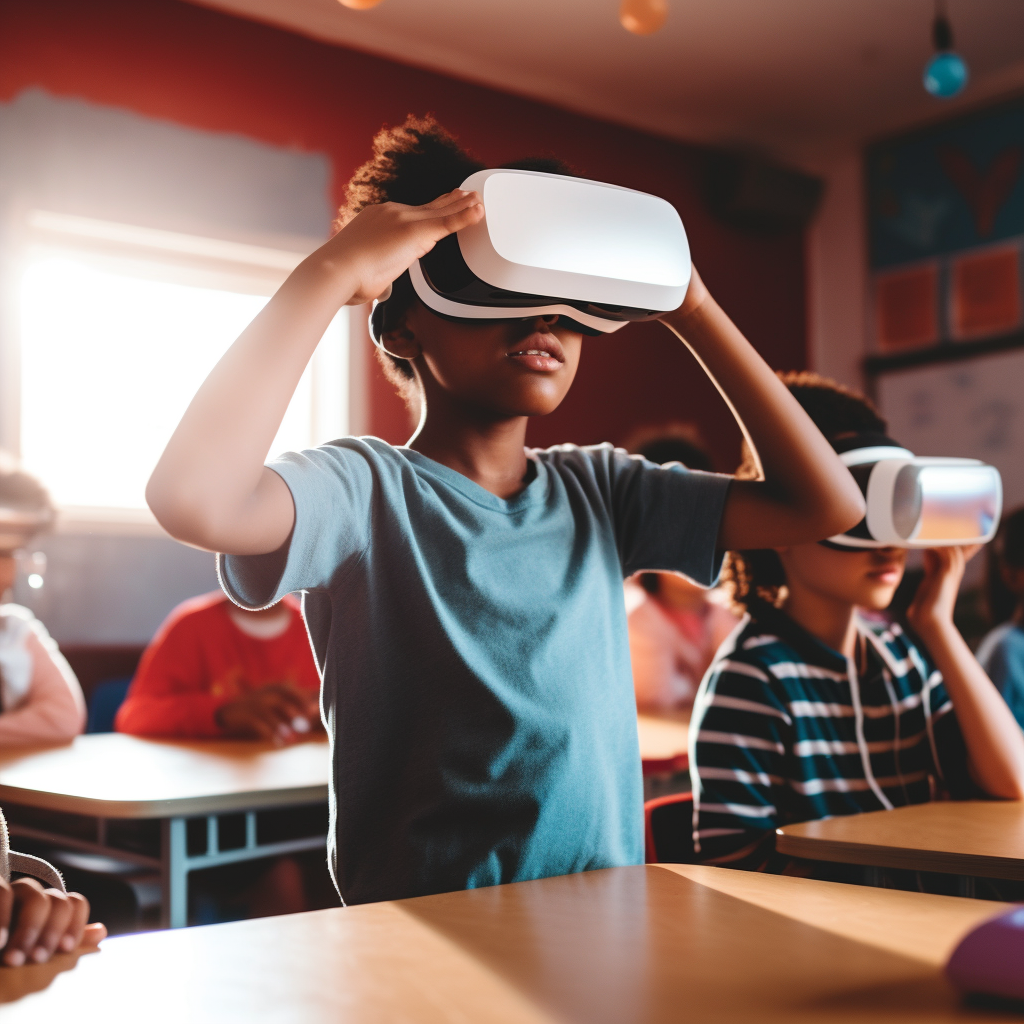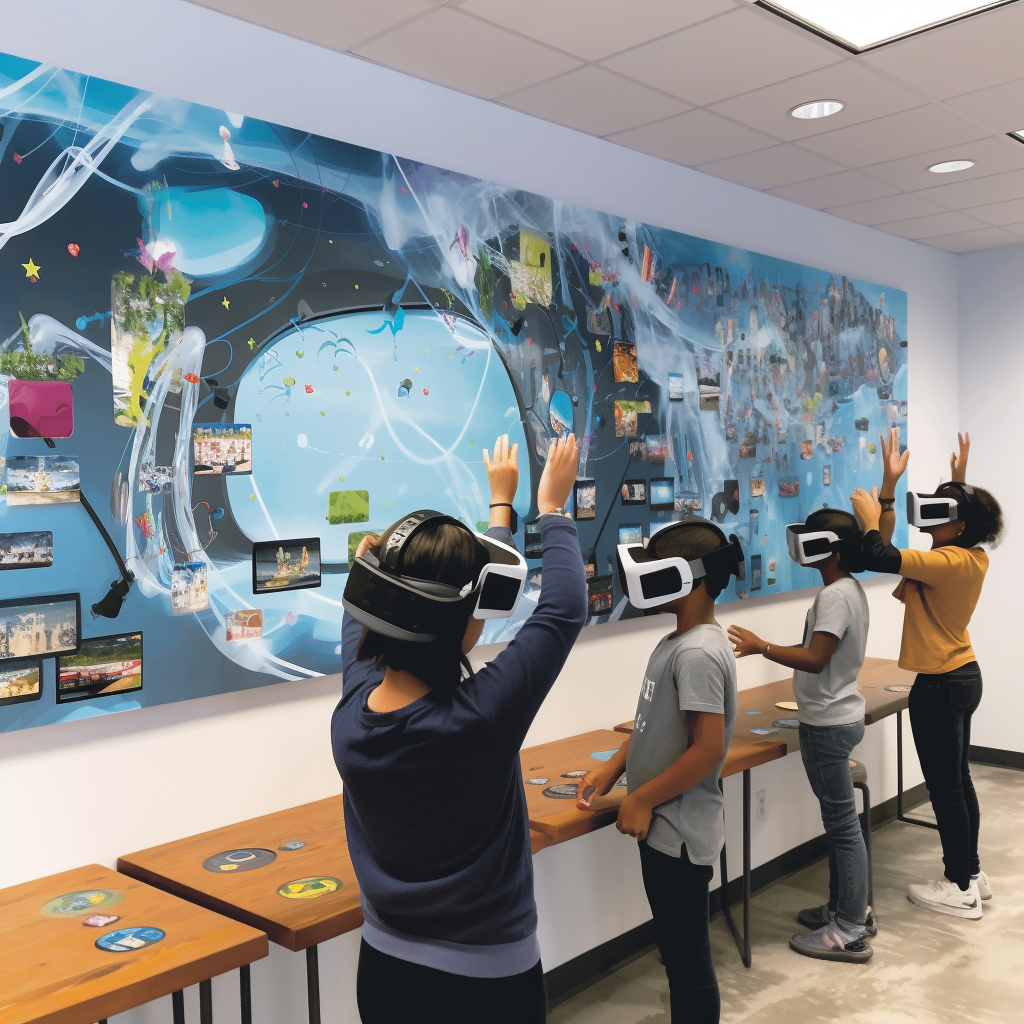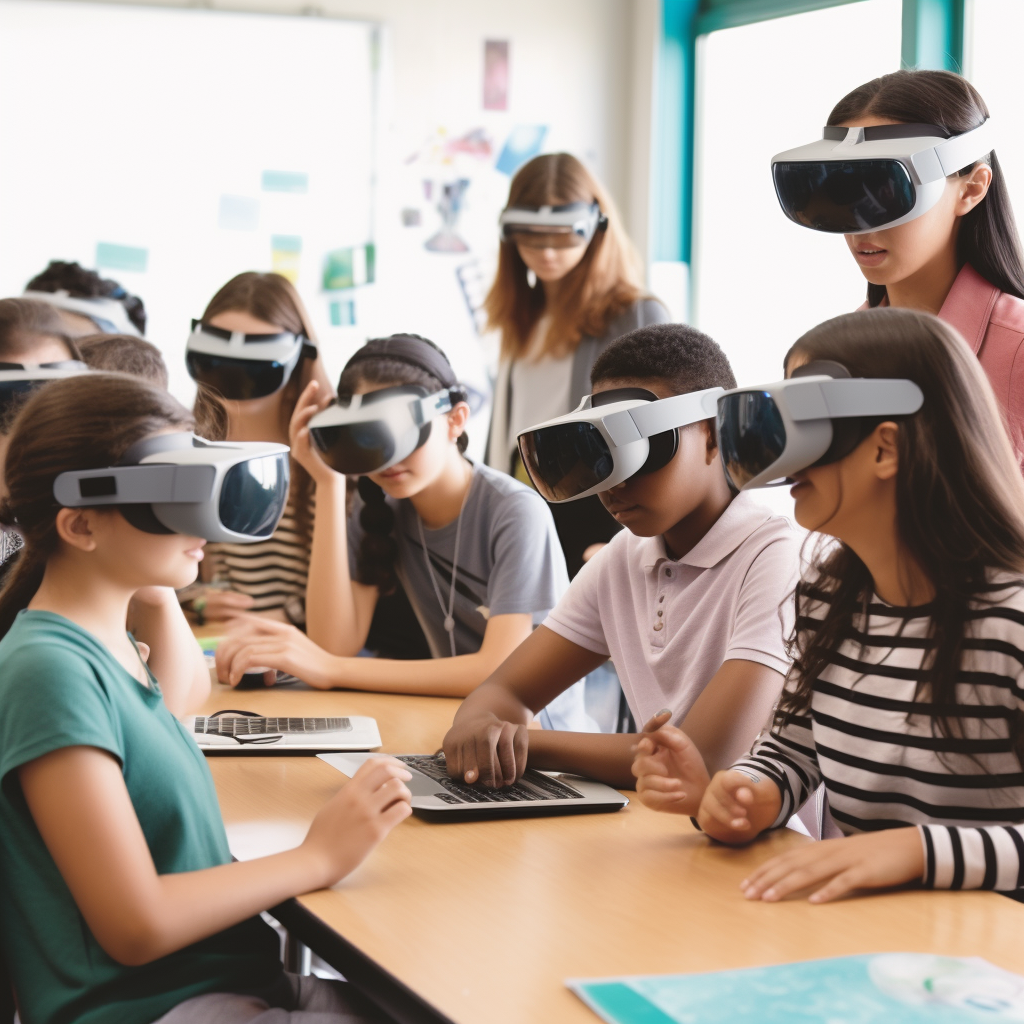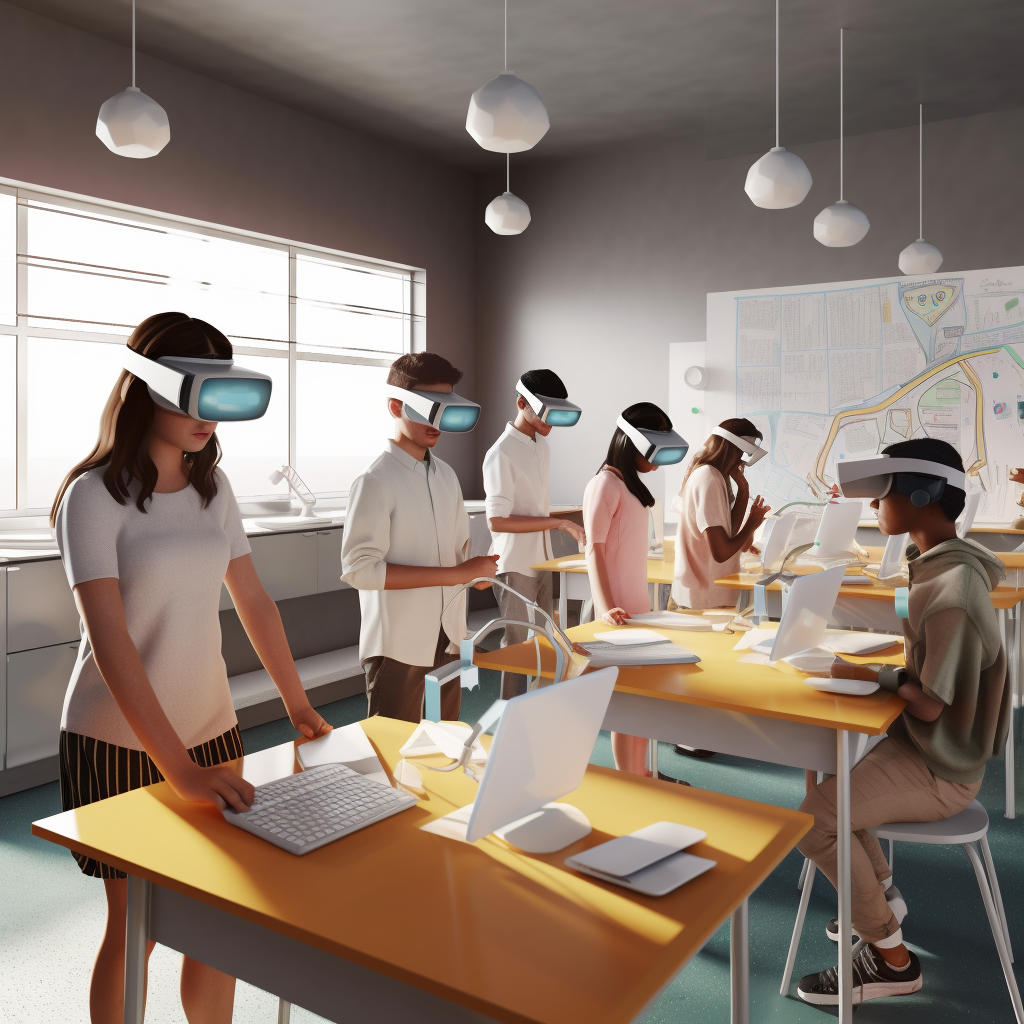Digital Classrooms and Beyond: How Technology is Shaping Modern Education
Introduction: The Digital Revolution in Education
In the blink of an eye, the landscape of education has transformed. Gone are the days of chalkboards and heavy textbooks. Today, digital classrooms are the norm, and technology's influence stretches far beyond the school walls. This article delves into the heart of this transformation, shedding light on the myriad ways technology is shaping modern education.

Digital Classrooms: A New Age of Learning
Digital classrooms are more than just a trend; they're a testament to how technology can enhance learning. These tech-driven spaces offer numerous benefits, from interactive lessons to instant feedback.
Benefits of Digital Classrooms
Digital classrooms offer a plethora of advantages. They provide a dynamic learning environment, cater to diverse learning styles, and promote collaboration. Moreover, they offer flexibility, allowing students to learn at their own pace.
Challenges and Solutions
Like all innovations, digital classrooms come with their set of challenges. However, with the right strategies and tools, these hurdles can be overcome, ensuring an effective learning experience for all.
Beyond the Classroom: Online Learning Platforms
The digital wave in education isn't confined to classrooms. Online platforms are making quality education accessible to everyone, everywhere.
Popular Platforms and Their Impact
Platforms like Coursera, Udemy, and Khan Academy have democratized education, offering courses on a wide array of subjects and catering to learners worldwide.
Synchronous vs. Asynchronous Learning
While synchronous learning mimics traditional classroom settings with live sessions, asynchronous learning offers flexibility, allowing students to access materials anytime.
The Role of Artificial Intelligence in Education
AI is no longer a futuristic concept; it's a present-day reality, especially in the realm of education.
Personalized Learning with AI
AI-driven platforms analyze students' learning patterns, offering personalized recommendations and resources, ensuring a tailored learning experience.
AI Tutors and Their Growing Popularity
AI tutors are revolutionizing education, offering round-the-clock assistance and ensuring students grasp concepts thoroughly.
Virtual Reality (VR) and Augmented Reality (AR) in Education
The realms of VR and AR are making waves in education, offering immersive learning experiences.
Immersive Learning Experiences with VR
VR transports students to different worlds, from historical sites to outer space, making learning truly experiential.
AR: Bringing Textbooks to Life
AR transforms static textbook images into interactive 3D models, making learning engaging and fun.
The Influence of Mobile Apps on Learning
In today's mobile-driven world, educational apps play a pivotal role in shaping learners' journeys.
Educational Apps for Different Age Groups
From toddlers to adults, there's an app for every learner, ensuring knowledge is just a tap away.
Gamification: Making Learning Fun
Gamified apps make learning enjoyable, using rewards and challenges to motivate learners.

Digital Classrooms and Beyond: How Technology is Shaping Modern Education
The digital transformation in education is global. From remote villages to bustling cities, technology is ensuring quality education for all.
The Global Impact of Tech-Driven Education
Digital tools are bridging educational gaps, ensuring every student, irrespective of their background, has access to quality learning.
Preparing Students for a Digital Future
Today's students are tomorrow's leaders. Digital education equips them with the skills needed for a tech-driven future.
The Ethical Implications of Digital Learning
With great power comes great responsibility. As education goes digital, it's crucial to address ethical concerns.
Data Privacy Concerns
Protecting students' data is paramount. Schools and platforms must ensure robust security measures to safeguard information.
Ensuring Equal Access to Technology
While technology offers numerous benefits, it's essential to ensure every student has equal access, preventing a digital divide.
The Future of Education: Predictions and Possibilities
The future of education is bright, with technology at its helm.
The Blended Learning Model
A mix of traditional and digital methods, blended learning offers the best of both worlds, ensuring holistic development.
The Rise of Lifelong Learning Platforms
Learning doesn't end with formal education. Platforms promoting lifelong learning ensure knowledge acquisition is a continuous journey.

FAQs
How are digital classrooms different from traditional ones?
Digital classrooms leverage technology to enhance learning, offering interactive lessons, instant feedback, and a dynamic environment.
What is the role of AI in education?
AI in education offers personalized learning experiences, AI tutors, and data-driven insights to enhance learning outcomes.
How is VR used in education?
VR offers immersive learning experiences, transporting students to different worlds and making learning experiential.
Are there any challenges associated with digital learning?
Yes, challenges include data privacy concerns, ensuring equal access to technology, and addressing the digital divide.
How do online learning platforms work?
Online platforms offer courses on various subjects, allowing students to learn at their own pace, either synchronously or asynchronously.
What is the future of digital education?
The future is promising, with blended learning models, lifelong learning platforms, and continuous tech innovations.

Conclusion: Embracing the Digital Transformation in Education
The digital revolution in education is here to stay. As technology continues to evolve, so will the ways we teach and learn. Embracing this transformation is not just beneficial but essential, ensuring students are prepared for a tech-driven future. The journey of "Digital Classrooms and Beyond: How Technology is Shaping Modern Education" is an exciting one, filled with endless possibilities and opportunities.